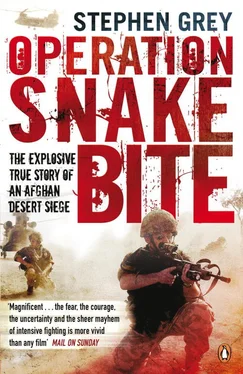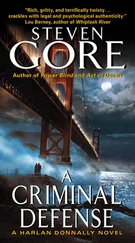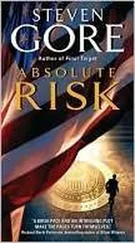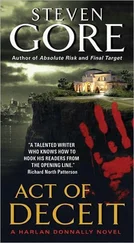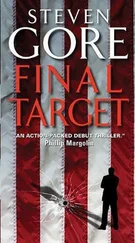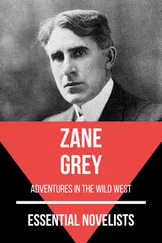Semple threw his laptop into his briefcase and jumped into his office car. As his car honked its way through the crowded streets he thought about the man who was waiting for him – a top Taliban commander. He could not but admire his courage. If anyone from his side found out about the talks, he could be hanged. A field worker for Semple had been wooing this man and had tracked him down deep in Taliban territory. After meeting him face to face, the field worker suggested the commander simply jump in a car to meet up with Naquib and Semple. And the commander had agreed.
Meeting Afghans and winning their trust involved rituals – and a language that went beyond words. As he entered the guesthouse, Semple could see that Naquib had placed the commander on a couch, not on floor cushions. ‘OK, he is urbanized,’ thought Semple, reading the clue.
The commander – whose name Semple still keeps secret – rose up and hugged the Irishman. There was a routine: arms round chest, pull left, pull right, pull left again, lean back and shake hands. The two men looked at each other and compared beards. His was a little longer than Semple’s but with no wavy edges, revealing that he trimmed it. ‘In local terms that meant he was a liberal!’ explained Semple later.
His headgear gave away a little more. It was a simple grey-checked kefiya scarf, rather than the rolled-up 9 yards of black silk that hardliners seemed to find essential. He looked Semple straight in the eye through a pair of professorial spectacles without tints. ‘Confident!’ thought Semple.
The commander got quickly to the point. It was about trust. A high-up Taliban official shared the commander’s view that the fighting would have no happy ending. He knew about Semple’s and Naquib’s reconciliation work. But to end the fighting in his area he needed to trust both foreign forces and the Afghan government. ‘Can I trust you? And can I trust them?’ he asked.
Semple knew something of this man by reputation and the fighters he led, some of the fiercest and apparently intransigent Taliban groups that were in battle with NATO forces. And yet here he was, sharing with him a cup of tea from a silver-coloured teapot and picking at the sugared almonds and toffees. They jousted over who should pour the tea.
‘You are a guest,’ said the commander.
‘No, you are a guest,’ said Semple.
The commander told his story in a few words. That was a good sign. Experience told Semple ‘to be wary of those who had too much to say’. This man was a real veteran, one who had fought as a Mujahidin against the Communist regime in Afghanistan in the 1970s – even before the Soviets had arrived. After the Soviets left, he went into business. And when the Taliban came he built cordial relations with them, but was never one of them.
The new government under President Karzai had also given him high expectations. He built a fine house in the local district centre. ‘And then his local rivals tricked the Americans into trashing and looting his house, supposedly looking for the enemy,’ recalled Semple. After that the man headed for the mountains and joined the resistance. The war had taken hold and before long the government was driven from their area.
Semple quizzed the commander about current details of the fighting, going through the picture village by village. It gave Semple a way of checking if this man was who he said he was. He appeared relaxed – tensing up only when he talked of civilian casualties. ‘I felt he was on the verge of tears,’ he recalled.
Talking fluently in Pashtu, Farsi and Urdu, the commander voiced his view that any peace settlement would be hard. He did not like the war. It had been forced on him and his people. But the men he led were tough and committed and would carry on fighting ‘however long their houses were bombarded’.
‘If I could really trust you and the government then it might be possible to find a way out of this,’ he said, adding only that, while he could vouch for local Taliban fighters, he could not control the foreigners who joined the Taliban to fight their jihad. ‘They have their own reasons for what they do,’ he said.
The more the commander talked, the more excited Semple was. It was clear this man was not only a serious player, but also serious about a path to peace. Plying him with questions and bubbling with enthusiasm, he abandoned all thought of taking notes on his laptop. Naquib, who had already done his part, said nothing throughout, ready as the silent umpire to give his verdict afterwards. Semple felt a buzz of adrenalin. ‘We really have a chance to do some good, perhaps to save dozens of lives,’ he thought.
Semple asked the commander if he would stay the night. ‘We would be honoured. It is not good to travel back so late,’ he said. But the commander knew his mind. He had to get back before he was missed. No one knew about his trip.
Semple took his permission to get up and leave. Clambering into his official car, he got out his laptop and rattled off an excited note as his driver, Waheed, pushed through the traffic. He was on his way to his next appointment with Dr Abdullah, the deputy head of the NDS and a small man in a big office of panelled walls. Semple had heard stories of the gadgets the walls concealed.
This afternoon, Abdullah was full of energy and enthused over what Semple was doing. They talked of what lay ahead. As Semple recorded in his computer that night, the spy chief’s view was that the main obstacles were ‘corrupt ministers’ and provincial governors. Looking back, Semple would see those words as prescient.
Semple told Abdullah he was pushing ahead in Helmand province and would tell him if he needed help. He raised the question of backing from President Karzai. Abdullah said that Karzai was positive. ‘I suggested it might be useful for us both to discuss it with the president – so I could say nice things about the NDS, and the NDS could say nice things about me!’ recalled Semple. Abdullah described that as a ‘wonderful idea’.
The meeting with Karzai never happened, though. The commander that Semple had met that day had said pointedly he believed a negotiated peace was possible ‘if only we could trust the government’. Did he know something that Semple was ignoring?
O utside Sangin bazaar, 14 November, 11.30
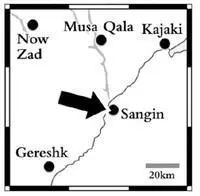
There is a blank in the mind of Lance-Corporal Onur Caglar about all that happened in the instant of the explosion. All he remembered was seeing his captain, John McDermid, thrown upwards and consumed in a great fire.
After their patrol was split in half earlier, their mentor team consisted of just the two of them, along with six Afghan soldiers and an interpreter. They were on the outskirts of Sangin, heading back to their base after a patrol through the green zone. Caglar felt the hot wind of the blast press against his face and jolt him off balance. Then, as the smoke cleared, he instinctively jumped sideways into a sort of grass-covered miniature garden as bullets started to crack around him. They were at a road T-junction and beneath a set of electrical pylons. He looked up and saw wires tumbling down in a shower of sparks. All the Afghan soldiers were in front of the blast and in front of him, and he saw it was they who were firing backwards towards him in panic. He shouted, ‘Stop, stop,’ and they lowered their weapons.
Caglar looked forward at where McDermid had been standing. He had vanished.
‘When all the dust had settled,’ he remembered, ‘all I saw was Captain McDermid’s leg, a big massive hole and then the interpreter lying there, and there was like bits of blood and stuff all up the wall.’
Читать дальше
